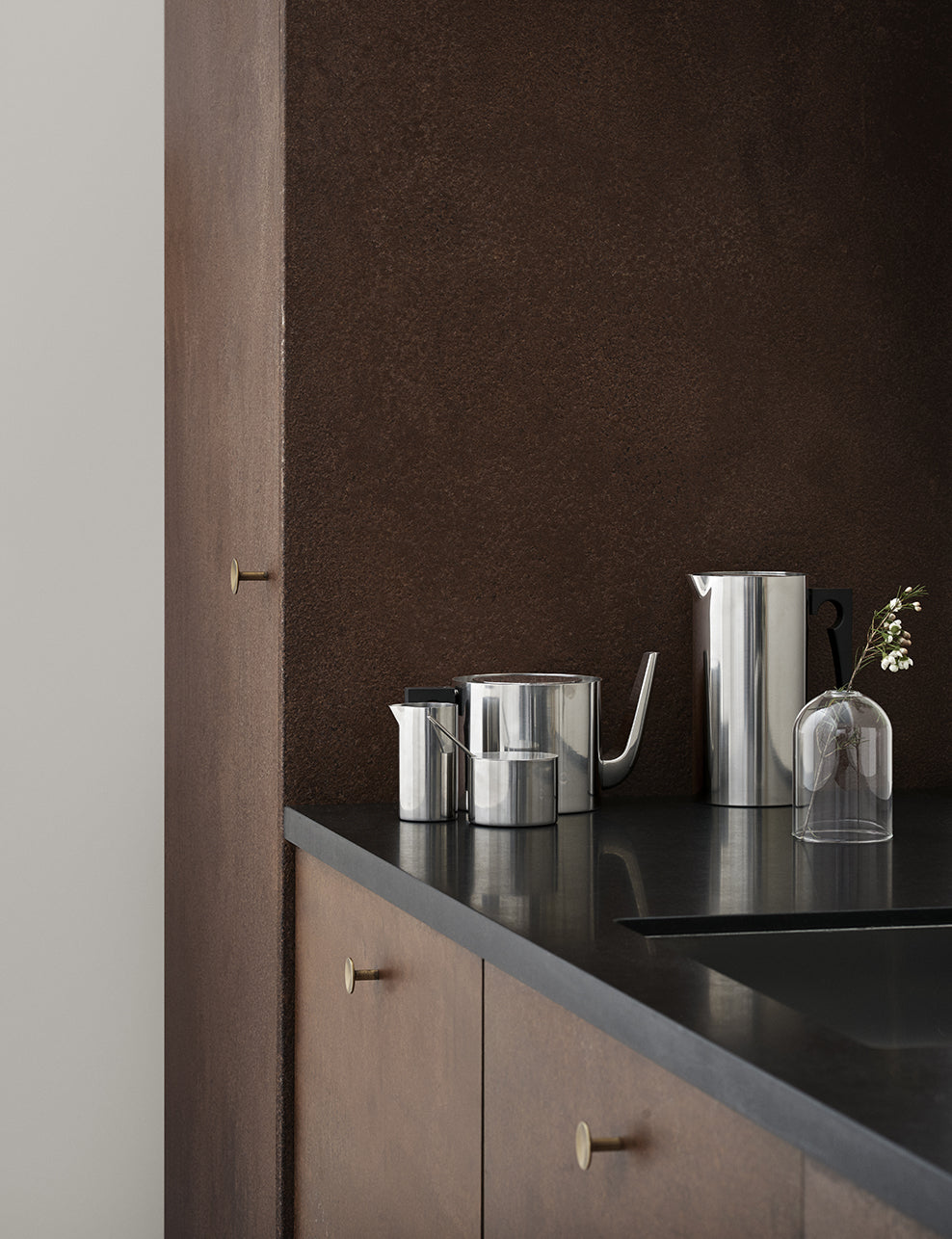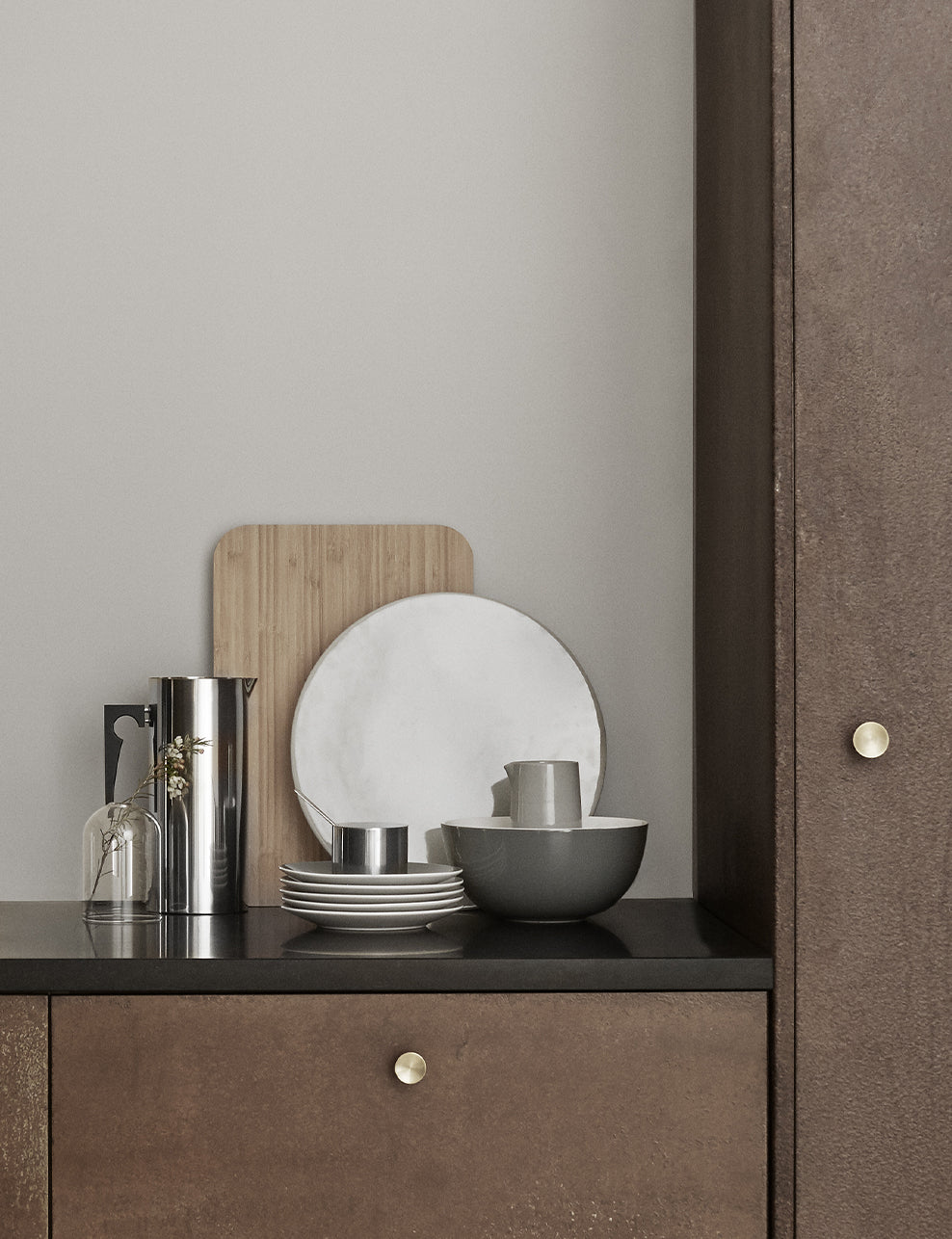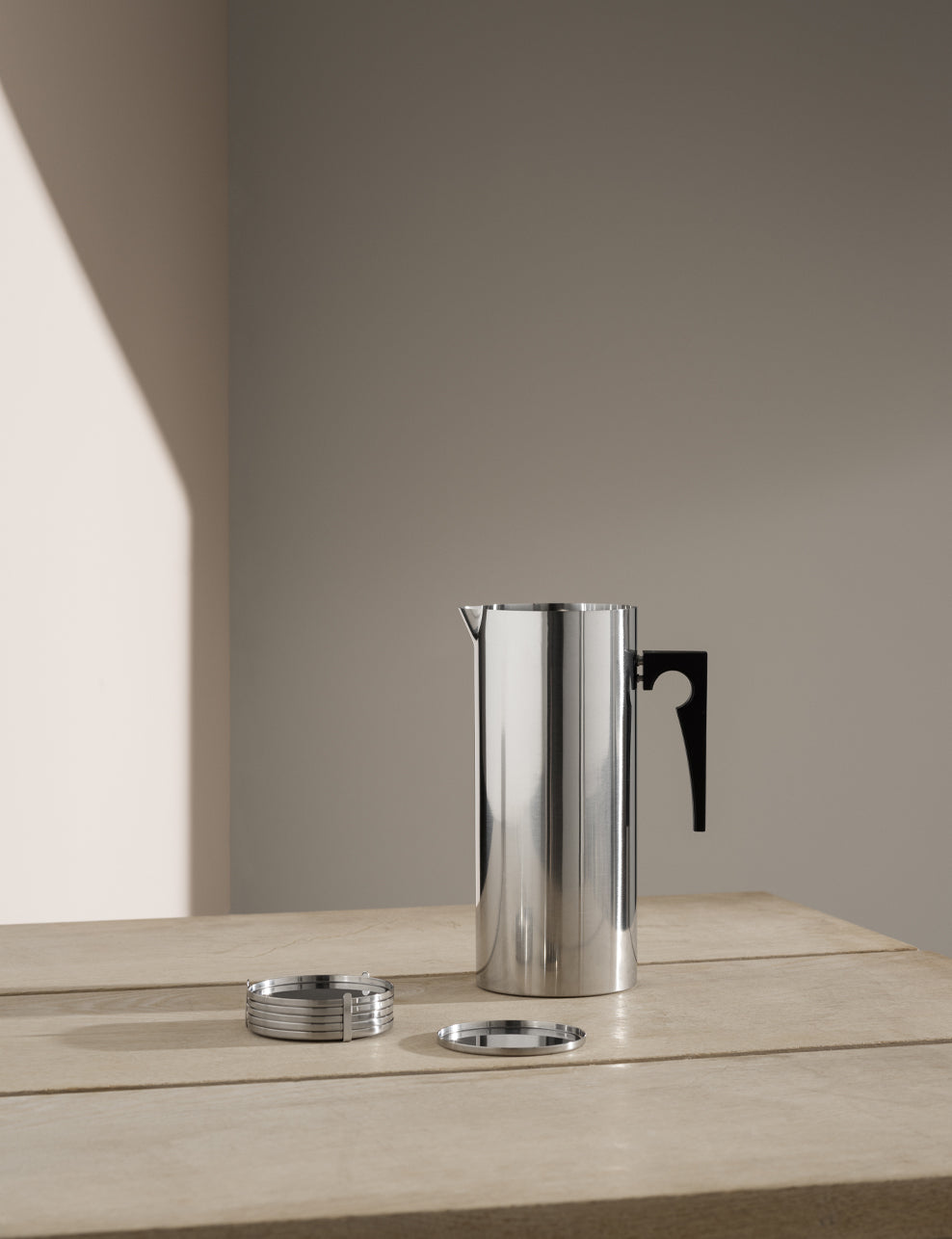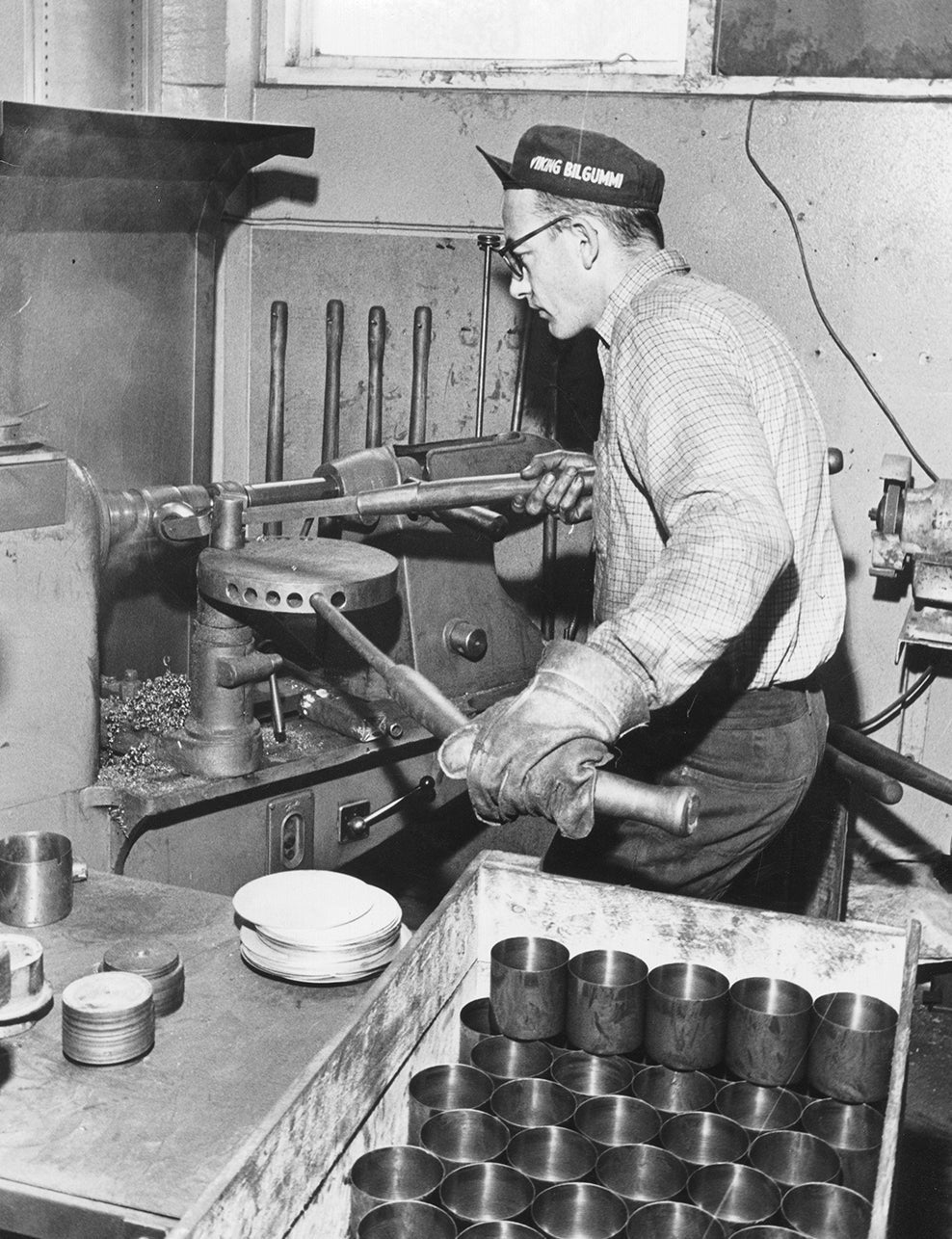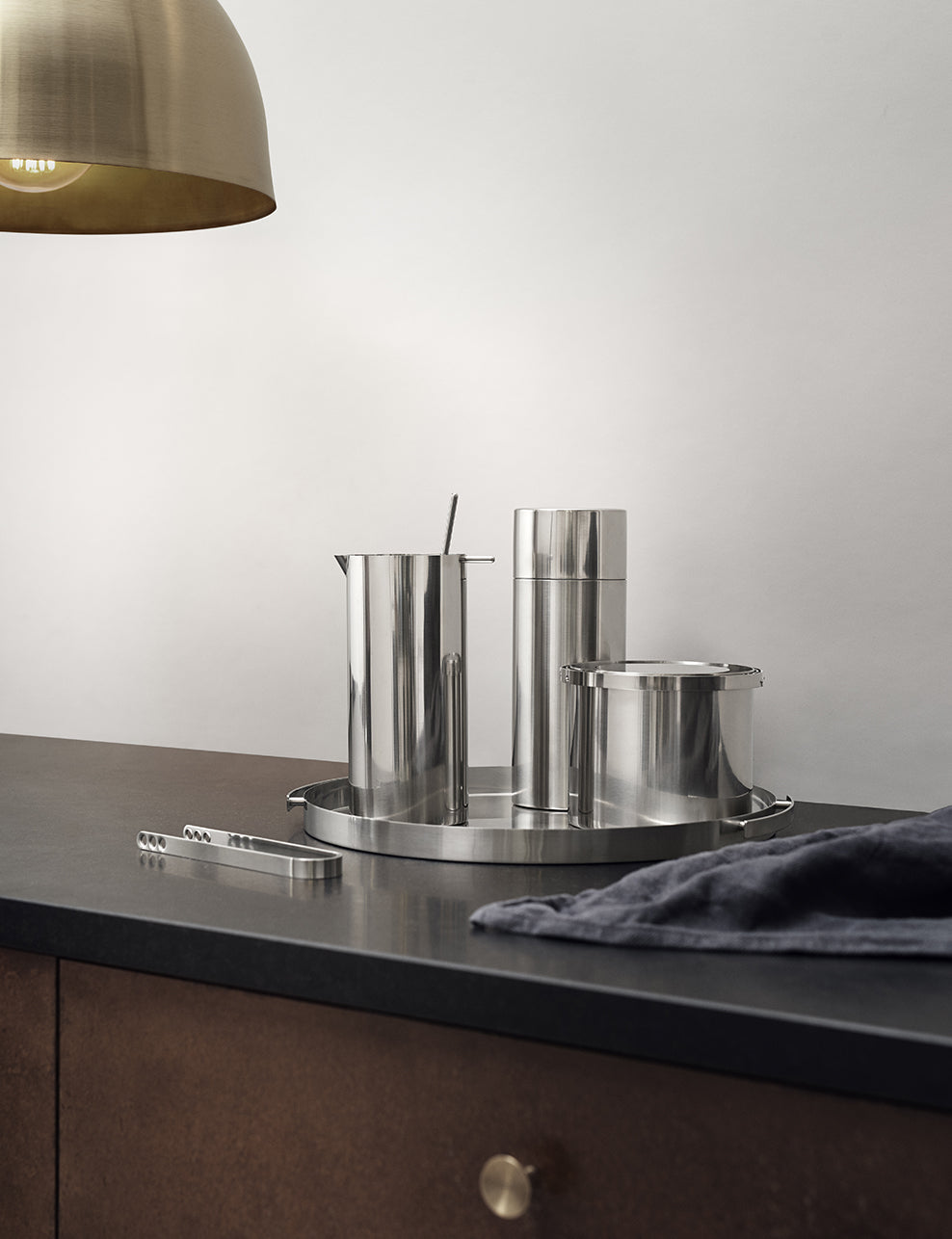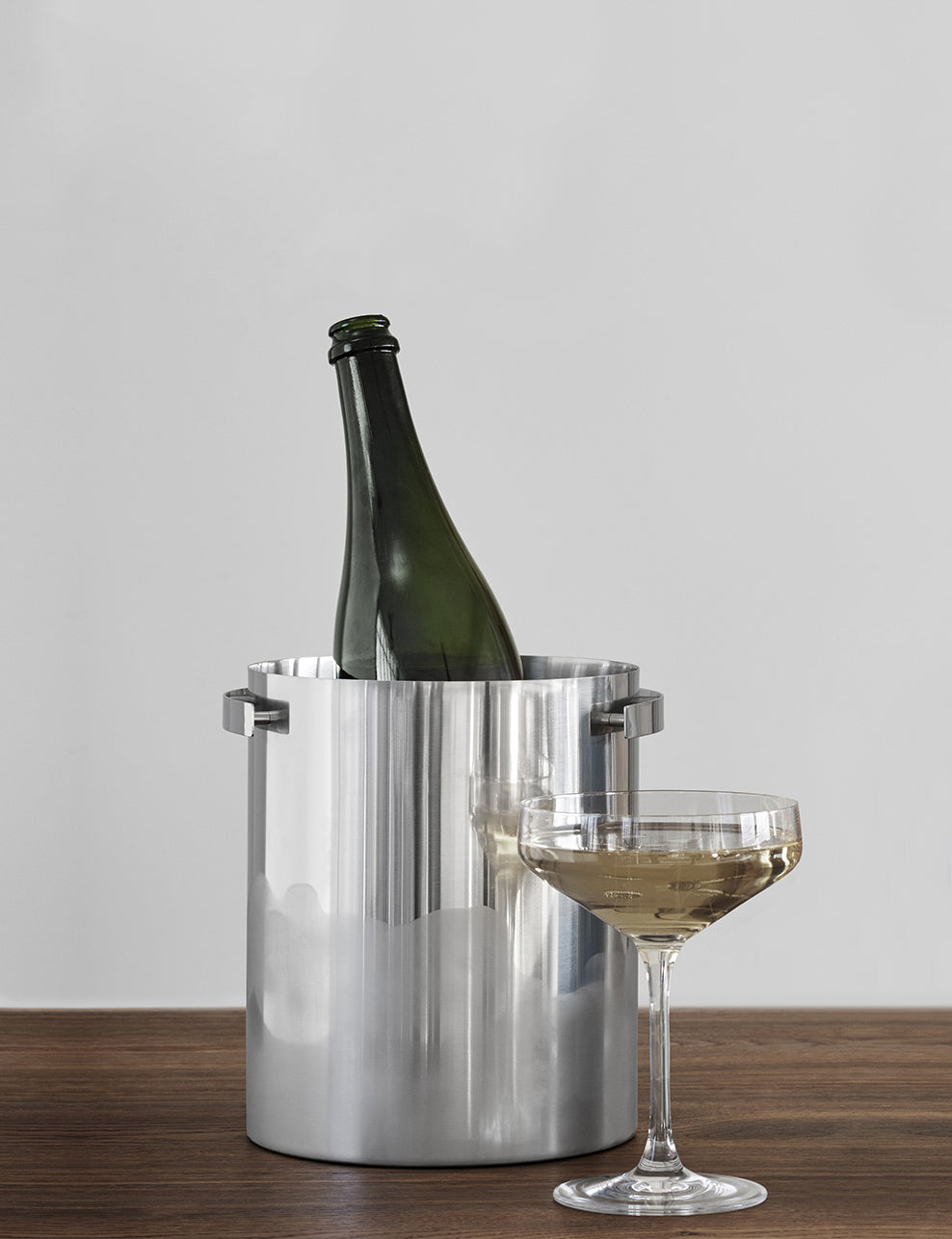It all started during a family dinner at Arne Jacobsen's with a simple drawing on a napkin.
The story of Cylinda-line started on a spring evening in 1964, at a family dinner at Arne Jacobsen's. The stepson of Arne Jacobsen, Peter Holmblad, whom then was the owner of Stelton, had a deep desire for Arne Jacobsen to design a complete series for Stelton. The series was to consist of everything for the home bar, from cocktail shakers to ice buckets and not least ashtrays, which were an essential part of the home bar. In addition, the series was also to consist of products for serving coffee and tea. There was only one problem. Arne Jacobsen was a very busy man.
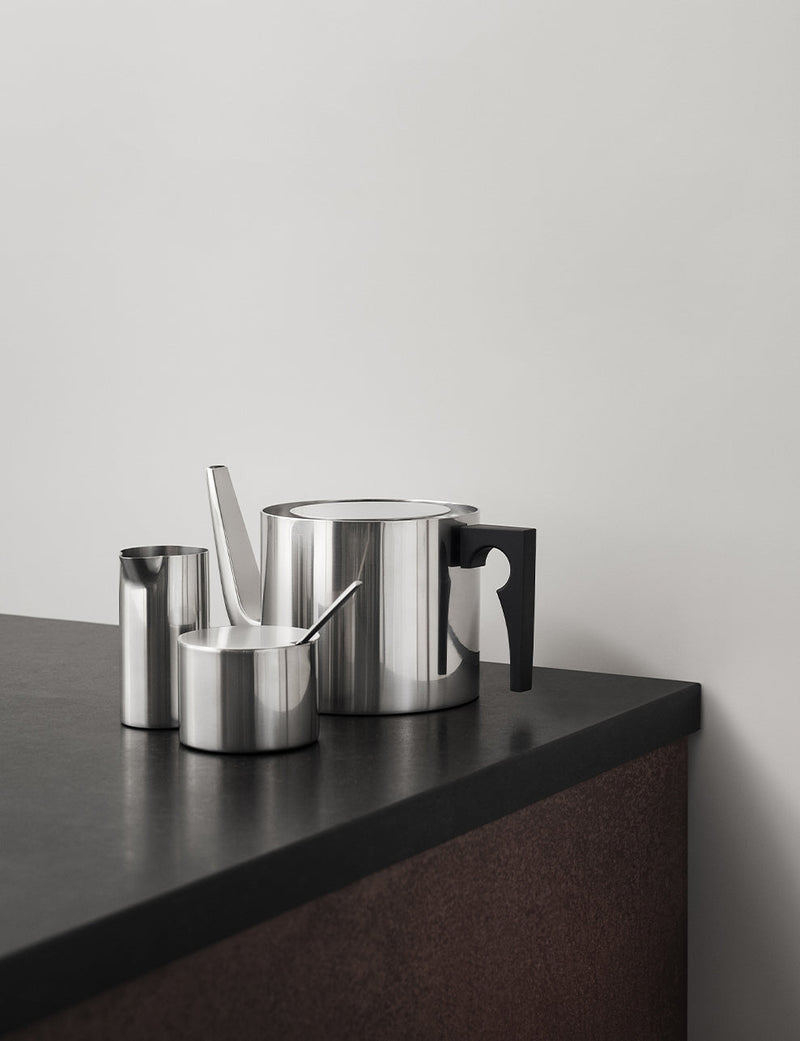
After seeing Peter Holmblad's sketches, Arne Jacobsen took a paper napkin and began to draw what would later become the teapot in the Cylinda-line series. The drawing looked simple, but producing the tea pot was extremely complicated.
Peter Holmblad quickly found out that there were major challenges in getting Cylinda-line from sketch to final product. An entirely new production method had to be invented and after three years of intensive development, the Cylinda-line was launched in 1967.
“I do not feel certain until I have confronted my initial solution with other solutions – although in fact the first solution often proves to be the right one.”
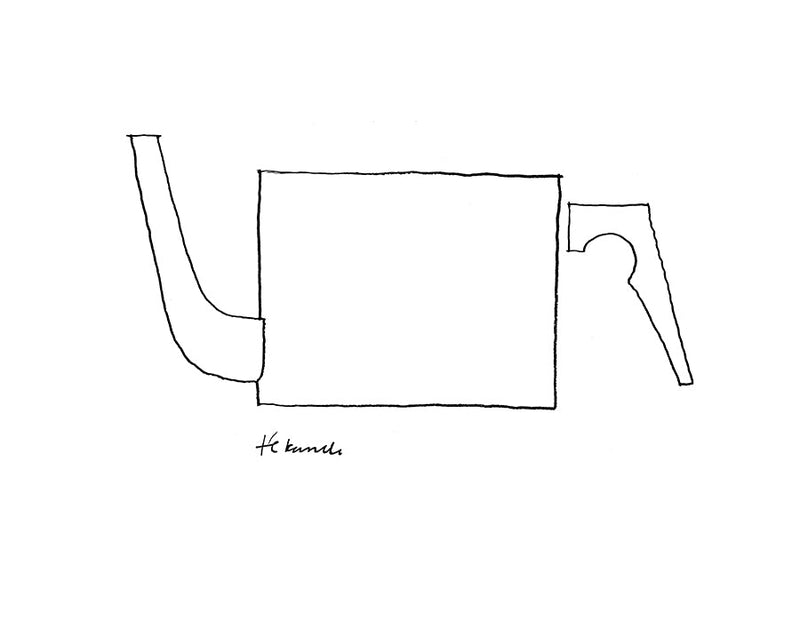
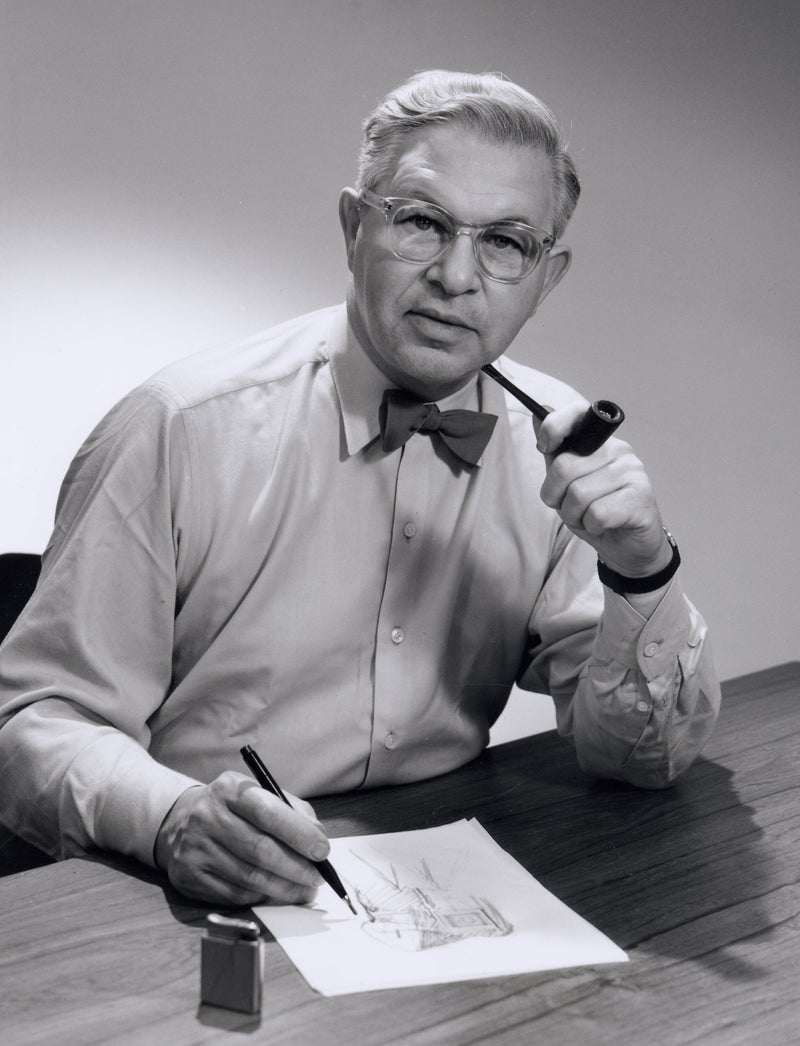
Arne Jacobsen is one of the most recognized Danish architects worldwide. He was uncompromising in his approach to design and often also designed the entire interior of his iconic buildings. Today we know him both as an architect and designer of furniture, lighting, and interiors.
The uncompromising designer
“In the phase of product development, Arne was sometimes deadly difficult. He would not accept when I came back from the factory and said that some of the design was technically impossible. Because he refused to compromise on design, we had to build the whole technology from scratch. At that time in the 60s, there was no experience with this cylindrical production method. Therefore, we had to invent it in order to produce Cylinda-line, as Arne saw it.”
- Peter Holmblad, former owner of Stelton
Iconic design since 1967
The products immediately attracted attention, and were seen as a renewal within their category. The cylindrical shape was the consistent feature along with the specially designed handle in Bakelite. It created a simplicity in the design, which together with the matt-cut steel stood in stark contrast to the completely shiny and curved shapes you otherwise saw on the market. For that time, the cylindrical and distinctive profile was innovative and modernist. Today, more than five decades later, Cylinda-line is recognized as an iconic and timeless classic. Cylinda-line has been exhibited at design museums around the world and has won several design awards over the years.
Untouched by time
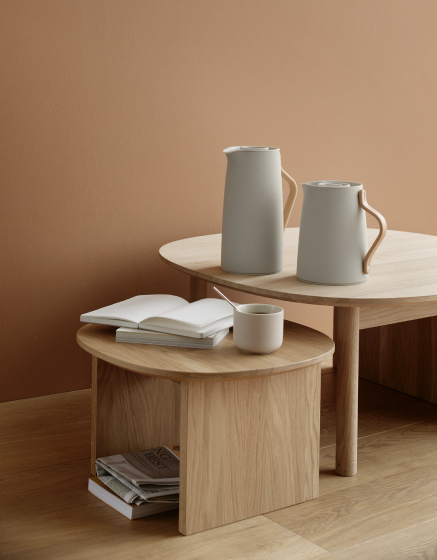
The award winning Emma Collection, with its simple and elegant lines, is a beautiful addition to any kitchen counter or dinner table.
